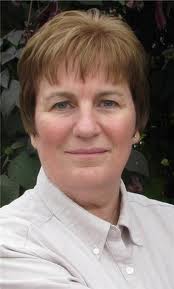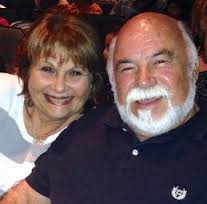• La importante periodista de Missouri, Mary Lou Montgomery entrevista al director de NHR.com
 MIAMI 26 DE ENERO DE 2015, nhr.com—La importancia de nelsonhortareporta.com ha llegado hasta el estado de Missouri, donde la periodista y editora del periódico Hannibal Currier Post, Mary Lou Montgomery le hiciera una entrevista al Director de este blog y a su esposa Vivian sobre Cuba, con el propósito de mostrar a sus lectores en el Hannibal Currier Post otra cara de la realidad cubana y los nuevos intentos de la administración de Obama de reiniciar relaciones diplomáticas con el gobierno comunista de Castro.
MIAMI 26 DE ENERO DE 2015, nhr.com—La importancia de nelsonhortareporta.com ha llegado hasta el estado de Missouri, donde la periodista y editora del periódico Hannibal Currier Post, Mary Lou Montgomery le hiciera una entrevista al Director de este blog y a su esposa Vivian sobre Cuba, con el propósito de mostrar a sus lectores en el Hannibal Currier Post otra cara de la realidad cubana y los nuevos intentos de la administración de Obama de reiniciar relaciones diplomáticas con el gobierno comunista de Castro.
Mary Lou Montgomery ha sido por muchos años la editora del Currier Post y publica su blog, ”Mary Lou Montgomery”, además ha sido ganadora de varios premios periodísticos, “Miami siempre me ha interesado, recuerdo que a mi padre el entonces alcalde de Miami Beach D. Lee Powell le entregó las llaves de la ciudad en 1955, además Cuba es un tema que le interesa a todos”, nos dijo.
Mary Lou aunque es estadounidense no habla español, sin embargo un día buscando noticias de Miami dio con nelsonhortareporta.com y cada día lo traduce para poder leerlo, fue así que después del anuncio de la reanudación de relaciones entre Cuba y Estados Unidos, Mary Lou decidió contactarnos para hacer la entrevista, y viajando hasta Miami nos reunimos para realizar su artículo que publicó recientemente, hoy lo reproducimos íntegramente.
As Congress contemplates lifting the Cuban trade embargo, pain of Cuban exile lingers ‘The Castro regime didn’t let us grow up in our country’
January 24, 2015
Mary Lou Montgomery
 Nelson Horta, 70, still carries in his heart love and affection for his native Cuba. Born there and raised until the age of 16, he has fond memories of school, friends and family, and of working as a DJ at a Cuban radio station.
Nelson Horta, 70, still carries in his heart love and affection for his native Cuba. Born there and raised until the age of 16, he has fond memories of school, friends and family, and of working as a DJ at a Cuban radio station.
“I love the country where I was born,” he said, reflecting upon the life he’s led. “I love more the United States. What this country did for us, no other country would do.”
When he thinks back upon the loss that his family and friends endured from 1959, at the onset of the Fidel Castro-led revolution and the seizure of property owned by Cubans and U.S. investors, to the failed Bay of Pigs invasion in 1961, and to his family’s exodus from their homeland with only the clothes on their backs in 1962, he pauses.
“It hurts,” Nelson Horta said, clenching his fist to his chest.
Request to lift trade embargo
During his 2015 State of the Union Address on Jan. 20, President Barrack Obama asked Congress to begin the process of lifting the half-century old trade embargo against Cuba.
“In Cuba, we are ending a policy that was long past its expiration date. When what you’re doing doesn’t work for fifty years, it’s time to try something new,” the president said during his address to the nation.
In Miami, Florida, at a trendy restaurant along the famed Miracle Mile, Nelson Horta reacted to the president’s message.
Horta, a radio political journalist of four decade’s duration in the Florida city defined by Cuban refugees, has an understanding of the Cuban/American relationship that only an insider can fully comprehend.
Nelson Horta carries with him the emotional scars of the Fidel Castro-led revolution that resulted in the overthrow of the military dictatorship of Fulgencio Batista in 1959.
“Do you know why the U.S. embargo is in place?” Horta asked, leaning forward, his eyes narrowing into focus. “Most people believe it is because of the Castro regime,” which has existed for five decades. But Horta said that is not the case.
“In 1961, Castro confiscated all American property in Cuba, industry and houses,” he said. “In 1958 and 1959, there were more Americans living in Cuba than Cubans living in the U.S. If (you were an American and) they confiscated your house, you had to leave.”
The government took ownership of the real estate, industries and businesses, from both Cubans and Americans. Americans went home without reimbursement for their property. The Cubans who were able to leave, in turn left everything they had previously owned behind.
The Bay of Pigs
In retaliation, a cooperative effort between the CIA, President Dwight D. Eisenhower and President John F. Kennedy, Cuban exiles were organized and trained to implement an invasion of Cuba dubbed The Bay of Pigs. The Castro regime learned of the planned attack in advance, and staged an effective counter attack. The U.S. invasion, launched in early 1961, was soundly overpowered by the Cuban resistance.
By 1962, Nelson Horta, age 16, had been kicked out of school because he wasn’t in agreement with the new Cuban regime. His father previously worked for Rayonera, a rayon plant in Cuba, which was confiscated by the government. His older brother, Raul, because he was anti-Castro, was a marked man in Cuba, and the government was looking for him.
“Raul went to the Brazil embassy (for safety) and stayed there,” Nelson Horta said. Six months later, Raul Horta received papers to immigrate to Brazil. “The plane made a stop in Panama,” Nelson Horta said, and his brother got off the plane there, instead. “Two months later (Raul Horta) came to the United States with a green card.”
Safe on U.S. soil, Nelson Horta’s brother started the paperwork necessary to bring the rest of his family to America. Because he was already in America, he was able to get visa waivers for his mother, father and younger brother, who in turn bought tickets at the airport in Cuba and let for the United States. They first stepped foot in the United States on May 31, 1962.
Settling in Homestead, Fla., his family members went to work picking avocadoes and tomatoes in order to earn money, and they began the process of learning the language and customs of their new, adopted country.
“Our life was very hard at the beginning,” Nelson Horta said, gesturing with his hands. “We started with nothing. No money, no language.” He remembers the pair of shoes he wore on the flight from Cuba. “I used them for 1 ½ years, every single day. We couldn’t afford to buy shoes.
“Mom is 90 years old now. All of her family died and she couldn’t go to Cuba to see them. The government wouldn’t let her. Her father, two brothers and mother all died. That is sad.”
Horta’s tone lightened when he spoke of his favorite memory from his life in Cuba. “I worked at a radio station as a DJ and I played the music of some of the singers that later were my friends in Miami: Nico Membiela, Orlando Contreras, Blanca Rosea Gil.”
Going back to school was not in the cards for Nelson Horta, but when he arrived in the United States, he found that his education was only beginning. “In 40 years as a journalist I learned how to play the political game,” he said.
And that real-life education has left him in a position to analyze the political motivation behind the President Obama’s move toward lifting the Cuban embargo.
“Somebody had to do something. President Obama did this, now this is his legacy. I think maybe it will be good for Cubans. But I know the system and the Castros. I don’t think it will be a success. What (the Castros) want is the power. They don’t respect human rights.
“They don’t want to give the power to the people (of Cuba.) They want to control everything.”
U.S. actions can’t change the way Cuba treats its people.
“It’s up to Cuba to give citizens freedom of speech, of religion, of everything.” Nelson Horta said.
Memories fade
Many of the Cubans who came to the United States between 1959-1961 have died already. “The new Cubans don’t have the pain of what happened. (The Castro regime) didn’t let us grow up in our country.
“The U.S. should ask Cuba to pay back everything that is owed. They stole everything from the Americans,” Nelson Horta said.
Vivian Horta a refugee too
Nelson Horta’s wife, Vivian, is also a Cuban refugee, arriving on U.S. soil Sept. 11, 1962. Her father, Tony Sed, owned a printing shop in Cuba that was seized by the Castro regime. Her mother, Olga, was a school teacher in Cuba. The Seds sent their oldest daughter ahead to the United States, and followed with their two younger daughters. They left behind many family members. Her uncle was on the last flight to leave Cuba before the U.S. visa waiver program was discontinued.
Not able to find printing work in Miami, the Sed family moved to West Palm Beach, where Tony found work and Vivian and her sisters enrolled in the public schools. “I was the only one in my class who didn’t speak English,” Vivian Horta said, “so I learned the new language as a matter of survival.”
The only help available for the refugees was a cash allowance for a family of six, $100 a month for three months, Vivian Horta said.
Tony Sed worked and saved until he had enough money to open his own print shop in Miami.
Freedom Tower
The Freedom Tower stands out on the Biscayne Bay shoreline, a 50-year reminder of the Cuban exodus.
“All arriving Cubans were taken to this building for processing,” Vivian Horta said. “My mom didn’t know English, so the first thing she did was enroll at the English Center. Nowadays, people don’t do that. They couldn’t care less if they learn the language.
“Many Cubans – even doctors – who came here didn’t know the language. They cleaned hotel rooms, cut grass” in order to get back on their feet financially.
Those immigrants – who respected human rights and valued education – were the ones who transformed Miami into the city that exists today.
Vivian is proud of the city that she and Nelson now call home, and how it has evolved during the last 50 years.
“When we came here in 1962, Miami was nothing. It was a ghost town. Very old and very little. We (the Cubans) created a country inside the U.S. Miami is different. There is nothing like Miami.
“People here now talk bad about the United States. I will not allow it,” she said. “This is my country.”
Note: Nelson Horta’s political blog reaches out to many Spanish-speaking countries. www.nelsonhortareporta.com
To translate Horta’s blog into English, click here




